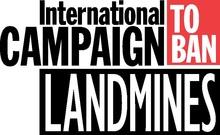Resource information
Key developments since May 2001: Myanmar?s military has continued laying landmines inside the country and along its borders with Thailand. As part of a new plan to ?fence the country,? the Coastal Region Command Headquarters gave orders to its troops from Tenasserim division to lay mines along the Thai-Burma border. Three rebel groups, not previously identified as mine users, were discovered using landmines in 2002: Pao People?s Liberation Front, All Burma Muslim Union and Wa National Army. Thirteen rebel groups are now using mines. Myanmar?s ruling State Peace and Development Council (SPDC) has not acceded to the Mine Ban Treaty. Myanmar abstained from voting on the pro-Mine Ban Treaty UN General Assembly Resolution 56/24M in November 2001. SPDC delegates have not attended any of the annual meetings of States Parties to the Mine Ban Treaty or the intersessional Standing Committee meetings. Myanmar declined to attend the Regional Seminar of Stockpile Destruction of Anti-personnel Mines and other Munitions, held in Malaysia in August 2001. Myanmar did not respond to an invitation by the government of Malaysia to an informal meeting, held on the side of the January 2002 intersessional meetings in Geneva, to discuss the issue of landmines within the ASEAN context (other ASEAN non-signatories, such as Vietnam, did attend). Myanmar was one of the two ASEAN countries that did not participate in the seminar, ?Landmines in Southeast Asia,? hosted by Thailand from 13?15 May 2002.
However, two observers from the Myanmar Ministry of Health attended the Regional Workshop on Victim Assistance in the Framework of the Mine Ban Treaty, held in Thailand from 6-8 November 2001, sponsored by Handicap International (HI). One health officer attending the meeting acknowledged that if Myanmar joined the mine ban it would be a good preventative health measure...



